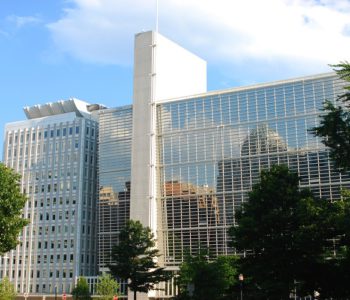‘Anti-competitive’ practice of fixing insurance premiums hurting customers
The premium for most of the policies is not only expensive compared to other South Asian countries, but reeks of anticompetitive behavior of insurance firms, according to experts.
KATHMANDU: Insurance companies have been earning profits in a way that is putting a huge cost on their customers who buy insurance policies from them.
Though customers have long been complaining about the ‘unfair’ practice of insurance companies fixing premiums for their policies, the insurance regulatory authority, Beema Samiti (Insurance Board), has been turning a deaf ear to this malpractice.
Rather, the Insurance Board has been giving a free hand to insurance companies in fixing high premiums that many customers characterize the practice as a ‘cartel’ of insurance companies.
Insurance companies fix premium rates for their policies and impose them on the customers.
The premium for most of the policies is not only expensive compared to other South Asian countries, but reeks of anticompetitive behavior of insurance firms, according to experts. Even the growth in the number of insurance companies has not helped in increasing competition and lowering the insurance cost, they say.
With an aim to increase competition in the market, the Beema Samiti decided to grant a license to 13 new insurance companies three years ago. There are currently 19 life insurance companies, 20 non-life insurance companies and one reinsurance company in Nepal.
The entry of the new players in the market was expected to increase competition so that the premiums that customers pay would decline. However, the rise in the number of insurance firms has not driven down premium rates or cost in the market.
Insurance analysts and customers blame the high cost of premiums on the practice of restriction on lowering the premium or tariff of policies from a certain limit. The practice to set the floor of premium for insurance policies restricts any insurance company to offer lower or competitive premium to their customers.
Beema Samiti officials admit the practice of fixing such tariffs for certain non-life insurance policies to curb ‘unhealthy practices’. Business leaders, however, say that such ‘anticompetitive’ behavior is hurting them and increasing their costs. They have urged the Beema Samiti to intervene to end such practices.
“In the banking sector, Nepal Rastra Bank has emerged as a strong regulator, enforcing regulations that prohibit banks from charging exorbitant lending rates through interest rates spread cap. While banks cannot charge interest rates higher than a certain limit, they are free to offer interest rates as low as they can,” said managing director of another leading industry that produces and supplies beer.
“This is not the case with the insurance sector of Nepal. There is collusion in the insurance sector whereby the insurance companies cannot provide premium charges lower than a certain level,” he added.
Instead of correcting the anomaly, the Beema Samiti has been siding with insurers, according to business leaders.
Depending on the industry, location and nature of the business, companies or firms have to purchase insurance policies to cover potential damage to their properties.
However, the high premiums that insurance companies charge in Nepal has been increasing the cost of doing business for them, they say.
“We have already forked out Rs 300 million for insurance policies. Looking at Indian tariffs, this policy should not exceed more than Rs 100 million. Why should we pay Rs 200 million more? If Beema Samiti intervenes to allow automatic competition, the insurance cost could have been lower. If premiums are cheaper, more people and businesses would sign up for insurance policies or coverage,” he added.
All premiums that insurance companies collect do not stay here with them or within the country. As they have to pay to the reinsurance companies abroad, a huge portion of such premiums flow out of the country.
However, the Beema Samiti and executives of insurance companies dismiss the allegations of ‘anti-competitive’ practices. “Some of the products’ premium policy is fixed to make sure that there is no unhealthy competition in the market. Otherwise, the premium or tariffs in Nepal are competitive,” said the chief executive officer of a non-life insurance company.











Facebook Comment